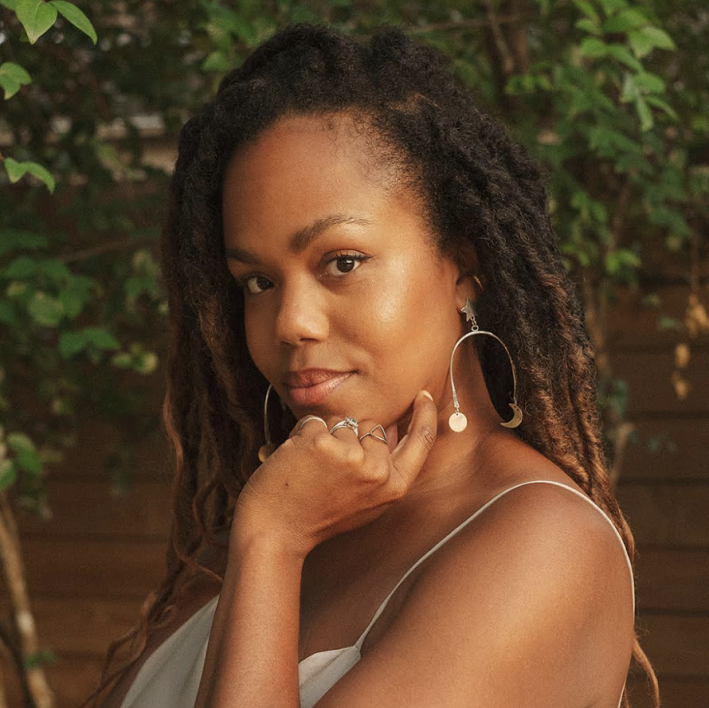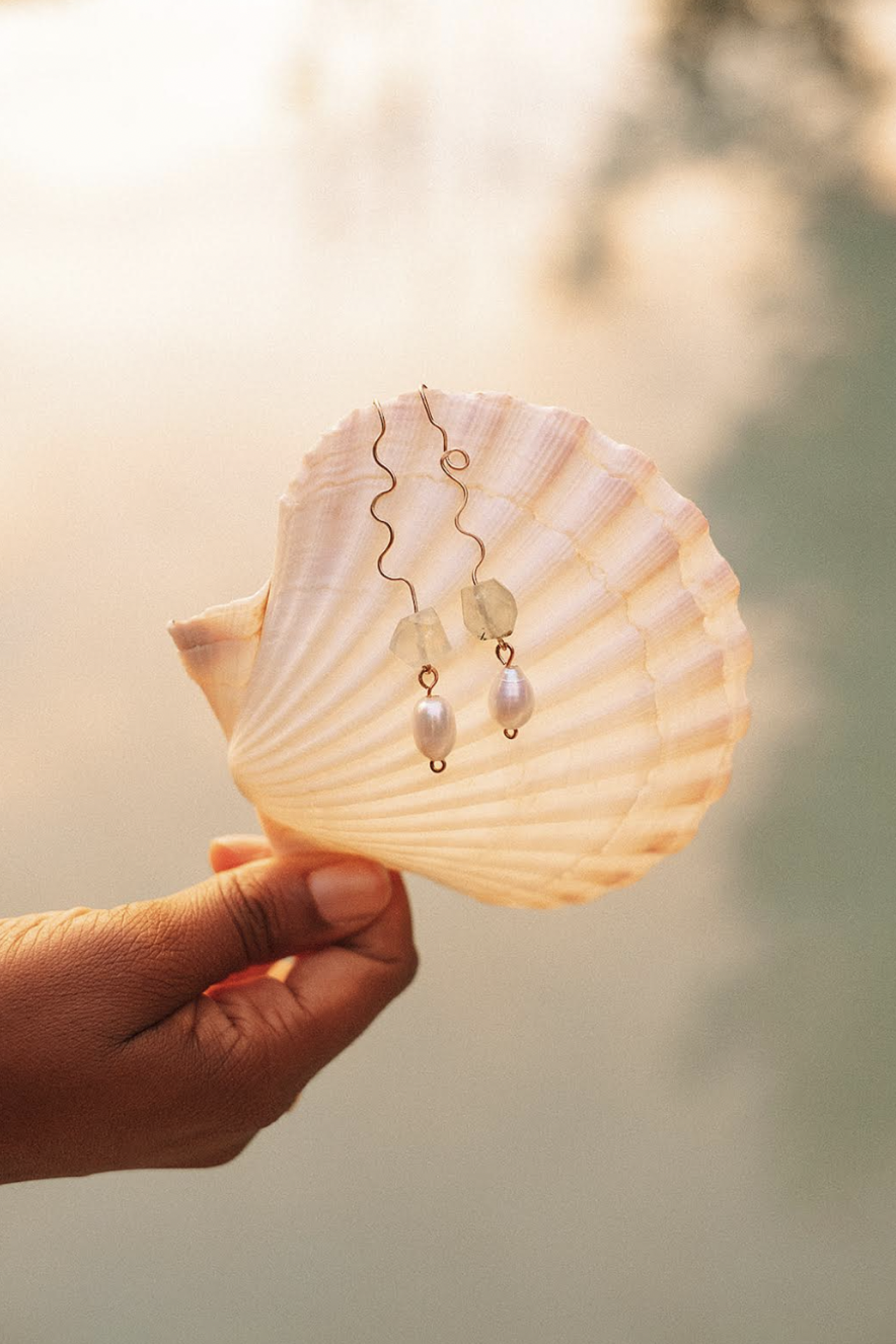An Elaborate Ladder
Why did it take me so long to find out I had ADHD?
Written by Shannon Cartwright

01 Shannon always struggled with mental health, but was never given a diagnosis that felt entirely right.
02 While she tried recovering through a more holistic approach, first-time motherhood left her feeling exhausted. So she visited her doctor.
03 Not expecting much, she was surprised with an ADHD diagnosis, and was finally able to gain the tools she needed to recover.
I was 38 before I was properly diagnosed with ADHD.
Growing up, it always took me a long time to complete tasks. I'd watch my friends in awe as they seemingly blazed through assignments, knowing it would take me twice as long. I always assumed I just moved slower, but never once considered that there might be another way to approach life. This way of living just felt like "me".
In my early twenties, I had some pretty awful things happen, and then became suicidal. I went as far as setting a date, choosing a method, and saying my goodbyes (though others weren't aware they were goodbyes). Then, a friend of a friend took his own life. I saw the absolute devastation and loss that followed, in tandem with a very real dream of my mother finding my body. So I made the decision that I would rather suffer on earth before putting my family through that. Afterward, I went to my mom to let her know I needed help.

My first psychiatrist was a nurturing woman who talked a lot. She diagnosed me with severe depression, and started me on a medication that I took for about 7 years. While the medication helped life seem a little less dark, I still didn't feel great. But I also wasn't thinking about dying all the time, so I counted it as a win.
I slowly stopped those medications when I got better, but years later, I started to feel ill again. When I saw a new doctor, she diagnosed me with bipolar disorder and we tried even more medications. Both made me feel absolutely terrible, so I decided to stay on anxiety medication and moved on.
By the time I saw a third doctor, who also diagnosed me as bipolar, I already knew the nightmare it was to be on medication. With a heavy heart, I decided that maybe there wasn't a medication or solution. I'd have to find an alternative treatment myself.
I dove into exercise, cannabis, and mindfulness like my life depended on it. I kept a daily schedule, had low alcohol intake, slept a lot, and saw really great therapists. I was feeling the best I had felt in a long time.
Then I became a mother.
Nothing can really prepare you for the trial-by-fire of parenthood. My body became foreign. My sacred schedules that kept my head on straight were thrown out the window. I was in such a haze of sleep deprivation and hormones that I could barely tell you which way was up.
Slowly, I started to rebuild my life and find myself again, but I could no longer ignore the exhaustion or depression I felt. I anxiously walked into a new doctor's office, ready to talk about my physical symptoms, and assuming they were the cause for my ailments. I will never forget how it felt when she asked, "Have you ever been diagnosed with ADHD?”
My first thought was, I must seem manic. I became angry at myself for not doing a better job at covering up my desperation. Was I talking too fast? Why would she think that? We slowly went down a list of questions, and when I answered all of those questions with a resounding yes, she had me fill out another questionnaire.
It felt like the world stopped spinning at hyper speed as she walked me through the diagnosis. I was in awe that I wasn't completely alone in my experiences, and teared up as she explained that I'm not a bad mom for struggling. After decades of misdiagnoses and filling my life with systems that kept me on track and functional, I learned that all of it was just an elaborate ladder to get over ADHD.
She walked me through medication options, and as someone with a toddler at home, I gladly chose a stimulant. I was completely shocked when the medication started working immediately. She told me that while it won’t shut off all of the radio noise in your head, it will help quiet it. And boy was she right.
The first time I took Ritalin, I was speechless. I will never forget the way it felt to work that day; I've never felt anything like it. I just moved. I just did. I felt myself trying to think of extra scenarios and ways to do things, but the medication took over and I just acted. The way I was able to complete tasks felt effortless, like I was flying. To be honest, I'm still so shocked that folks who aren't neurodivergent are just born functioning that way.

My anger, anxiety, and irritability, all went down significantly, and I had a better understanding of what triggered certain emotions. It also put a huge spotlight on the way I had been thinking and operating before. I could never just finish a task, because each step of the way, I was thinking about five different ways each step could be done. Then, weighing which way felt best. Then, completing the task and second guessing how I had chosen to get it done. I never really knew or understood just how many steps my brain added to a task until the medication helped me.
I get weepy thinking about how long this journey has been. All of the misdiagnoses, wrong medications, strained relationships, lost jobs — so much can be traced back to undiagnosed ADHD. Unfortunately, this is all very common for those who are diagnosed with ADHD in adulthood. Up until recently, very specific symptoms were primarily looked for in white men. I'm happy to see how far medicine has come when it comes to pinpointing ADHD, and training doctors to recognize that this disorder presents in many ways.
After years of masking, I'm now slowly learning how to show up as my authentic self. I run a jewelery business, and just put out some of my best jewelry to date — which I don't think is a coincidence after I've been peeling back the layers.
I'm grateful to move into this new chapter of life, having a better understanding of who I am and how my brain works. And I'm hopeful that more black women, and those who may not present ADHD in ways that are typically seen, can get the freedom and relief that comes from a proper diagnosis.
<>
ABOUT THE AUTHOR
My name is Shannon Cartwright. I am a mother, wife, and a metalsmith and jewelry designer. My jewelry company is called Lou Jewels.
I struggle with what to call myself professionally because I've studied under jewelers who have been hunched over a jeweler's bench for 40 years, and can set a 1mm diamond with their eyes closed. I've been studying metal work for 11 years, but I'm nowhere near that level, so I feel more comfy referring to myself as a metalsmith.
Website: www.loujewels.com
Instagram: @myloujewels
TikTok: @loujewels
Support our work
We’re on a mission to change how the world perceives mental health.



















